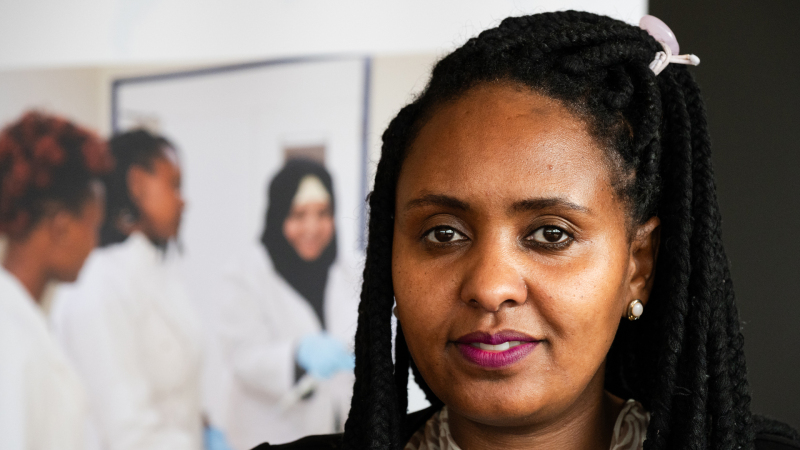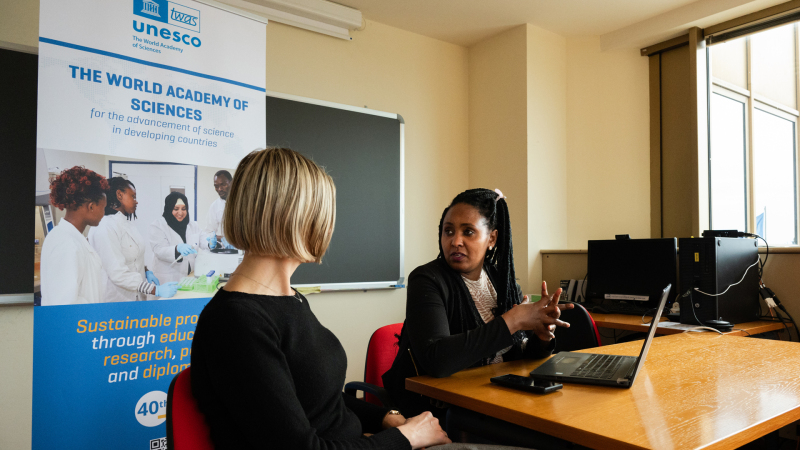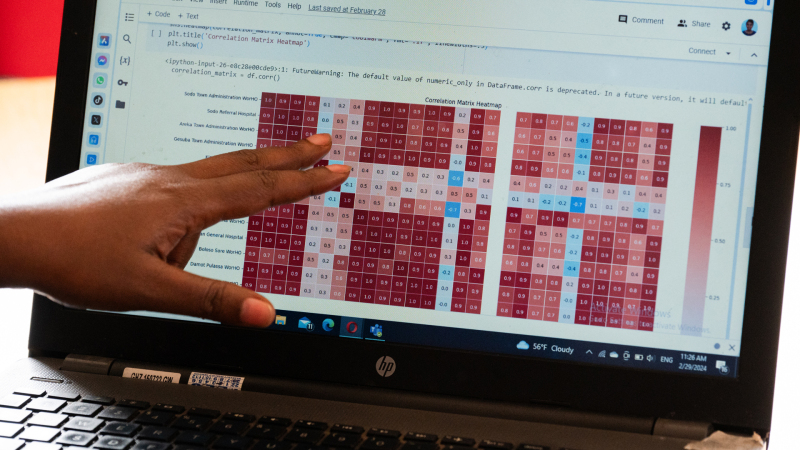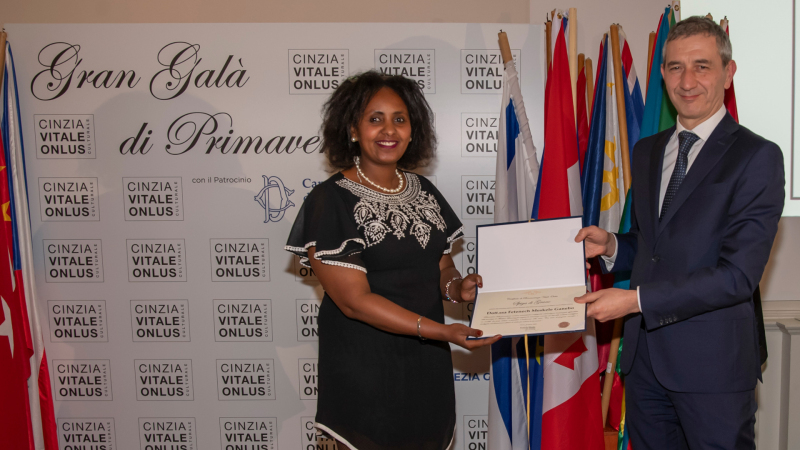Fetenech Meskele Ganebo, dean at the School of Informatics, Wolaita Sodo University, Ethiopia, is using artificial intelligence to predict the spread of malaria within Ethiopian communities.
The computer scientist visited the University of Trieste, in Italy, from 15 January to 15 April 2024 under a TWAS-SISSA-Lincei Research Cooperation Visits Programme fellowship. During her time there, she worked to leverage the power of machine-learning approaches. Her aim is to develop algorithms that predict how the disease may affect the population according to climatic conditions and demographic situation.

Once the algorithms are fine-tuned, she will use them to investigate the combined effect of risk factors like temperature, altitude, malaria vector, and the population health status. This should allow her work to describe which malaria patterns lead more easily to death, providing health operators and policy-makers with predictive and more effective tools.
Ganebo is also the recipient of the Spiga di Grano Award, bestowed by the cultural association Cinzia Vitale Onlus, headquartered in Trieste. She has received the accolade during a public ceremony on 18 March, at the traditional Gran Galà di Primavera, for her professional determination and scientific commitment.
"The Italian experience under the TWAS-SISSA-Lincei programme is implementing my career as never before. Receiving the Spiga di Grano Award from Cinzia Vitale Onlus is adding extra value to my efforts," she said.
You can watch the video about computer scientist Fetenech Meskele Ganebo here
Implementing anti-malaria measures
Ganebo earned a Master of Technology in computer science and engineering from Osmania University in Hyderabad, India, gaining specific competence in machine learning tools. Her current goal is to become the focal point in Ethiopia for the application of a model that can predict the likelihood of malaria’s spread, starting from data that are not automated.

In Italy, she worked with Professor Sylvio Barbon Junior, an associate professor at the Department of Engineering and Architecture, University of Trieste. In the high-transmission malaria-prone region of Wolaita, a rural, densely-populated area in South Ethiopia, data about malaria prevalence are still collected manually, she explained. Hence, her first task was to digitalize that data.
Subsequently, she developed machine learning algorithms (MLA) to predict the occurrence of the disease. MLA are rules or processes used by artificial intelligence systems to discover new insights and patterns within non-organized data.
According to the 2023 WHO World Malaria Report, in 2022 there were an estimated 249 million malaria cases in 85 malaria-endemic countries, with 608,000 deaths. And Ethiopia, as WHO reports, is one of the three African countries that most suffered from malaria infections in 2022, along with Nigeria and Uganda.

"Malaria is one of the leading causes of death in Ethiopia, and children are, in general, among the most vulnerable victims because they have not yet developed a partial immunity. But the impact on people's health may vary a lot, according to variables that make the issue very complex," Ganebo said.
This is why there is a need to investigate in more detail the combined effect of individual risk factors and factors like temperature, altitude, and malaria vectors, and confront all these with the specific causes of death.
"I want to determine the hierarchical importance of the different risk factors and their patterns on malaria death occurrence," Ganebo explained. "To this purpose, I am currently using the predictive power of machine learning approaches on data collected from more than 450,000 patients between 2021 and 2023."

Once the technique is refined, Ganebo will apply it in Ethiopia, creating a regional surveillance protocol to support healthcare systems in the management of mosquito control strategies and resource allocation.
Malaria is highly linked to changes in climate. In rainy years, mosquitoes are more abundant and spread more. In dry years, the lack of rain impacts agriculture: less food means that people are weaker and more prone to malaria.

"If we understand how to identify hidden, significant data about malaria that could be used for better infection trend prediction, we would greatly improve the Ethiopian health system," she observed.
"Three months is long enough to give good results, especially since I am committed to my task," Ganebo said. "And the collaboration with Prof. Barbon Junior is promising. He has an ambitious plan, suggesting that we could prepare a project to automate the collection of health data in Wolita Sodo City, and, at a later stage, across all Ethiopia." Currently, all the health centre services are managed manually. Automation would increase efficiency, accuracy, and broader analyses, granting better patient care.
Ganebo has an ambitious plan as well. To become a focal point for this kind of analyses in Ethiopia, she says she needs to further her education. This is why she is seeking a scholarship to support her desire to earn a PhD in Trieste.
Cristina Serra
About the TWAS-SISSA-Lincei Research Cooperation Visits Programme
The TWAS-SISSA-Lincei Research Cooperation Visits Programme supports early-career researchers in the UN-identified Least Developed Countries on projects that contribute to the Sustainable Development Goals (SDGs).
It offers opportunities for training and collaboration in scientific institutions of the Friuli-Venezia Giulia Scientific Innovation System (Sis FVG) in Italy. It is supported by the Italian Ministry of Foreign Affairs (MAECI) and the Italian Agency for Development Cooperation (AICS).

